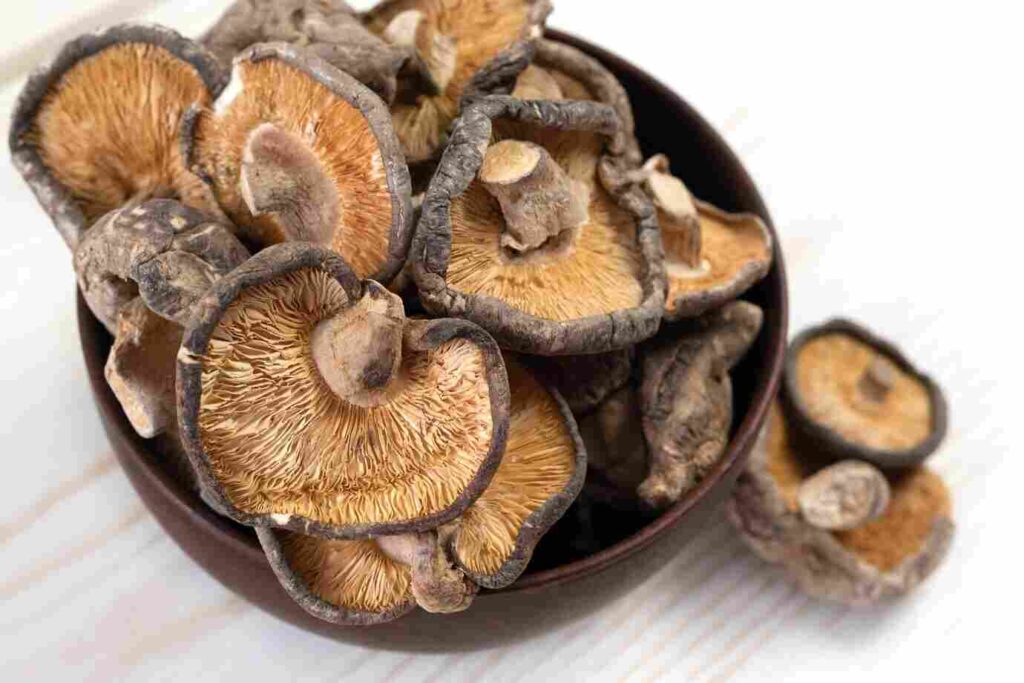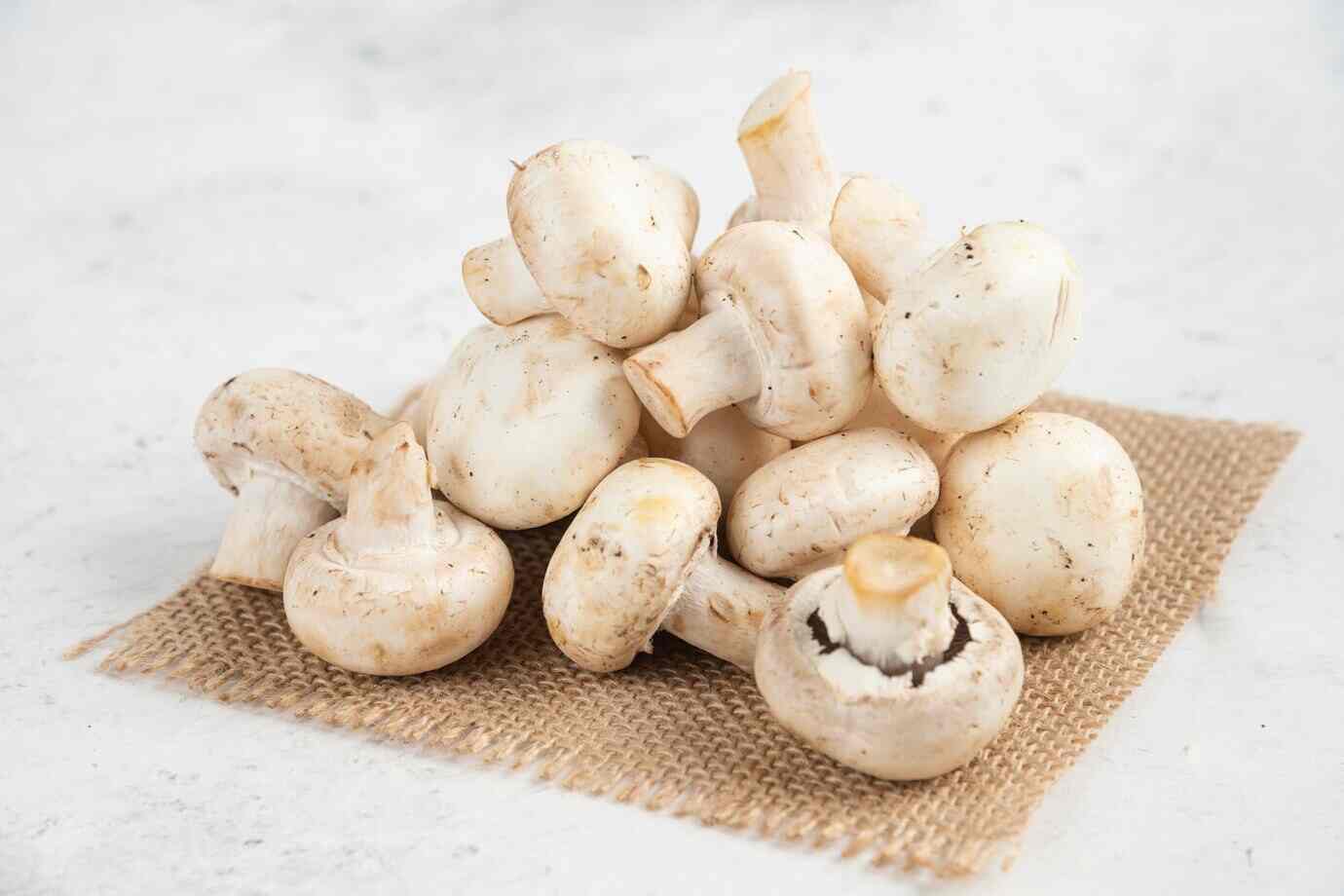Mushrooms are having a major moment in wellness—and for good reason. These humble fungi have been used for centuries in traditional medicine, especially in cultures across Asia and Eastern Europe. Today, they’re getting well-deserved recognition in modern nutrition and science.
What makes mushrooms so special? They’re packed with nutrients like B vitamins, selenium, and copper. Many also contain powerful antioxidants and unique compounds that support immune function, brain health, and more.
Whether it’s shiitake in your stir-fry or lion’s mane in your coffee, mushrooms are making their way into everyday diets for their potential health perks. Researchers are now uncovering how certain mushrooms may help lower inflammation, support gut balance, and even protect against cognitive decline.
In this article, we’ll explore the science-backed health benefits of both common edible mushrooms and medicinal varieties. If you’ve been curious about adding more mushrooms to your routine, this is your go-to guide.
Ready to dig in? Let’s explore the health benefits of mushrooms and what makes them such a powerful part of a nutritious diet.
Nutritional Overview of Mushrooms
Mushrooms are often overlooked as a nutritional powerhouse, but they pack an impressive punch. Despite being low in calories and fat, they’re rich in essential nutrients that support energy, immunity, and overall wellness.
Here’s a quick look at what makes mushrooms so good for you:
| Nutrient | Benefit |
| B Vitamins (B2, B3, B5) | Help convert food into energy and support brain function |
| Selenium | Powerful antioxidant that protects cells and supports immune health |
| Copper | Aids in iron absorption and supports cardiovascular and nerve function |
| Fiber | Promotes gut health and helps maintain stable blood sugar |
| Protein | Plant-based source that supports muscle repair and growth |
| Vitamin D (UV-exposed) | Supports bone health and immunity; rare in plant-based foods |
| Ergothioneine | Unique antioxidant found almost exclusively in mushrooms; protects cells |
Mushrooms are also naturally low in sodium and cholesterol, making them heart-healthy. Some varieties like portobello and white button offer more potassium than a banana, helping with blood pressure regulation.
Whether you sauté them, grill them, or blend them into smoothies or sauces, mushrooms are a smart and versatile way to upgrade your diet.
Still wondering, are mushrooms good for you? The science says yes—thanks to their broad mix of nutrients and unique compounds not commonly found in other plant foods.
Top 7 Proven Health Benefits of Mushrooms
Mushrooms aren’t just tasty—they’re packed with compounds that do wonders for your body. Let’s break down the top health benefits of mushrooms, backed by science.
1. Supports Immune Function
Mushrooms contain beta-glucans, which are natural polysaccharides that help activate immune cells like macrophages and natural killer cells. This means your body becomes more effective at detecting and fighting off invaders.
A review in Journal of Translational Medicine (2014) found that beta-glucans from mushrooms enhance the innate immune response, helping the body react quickly to threats.
Best varieties: Shiitake, maitake, and reishi.
2. May Improve Brain Health
Lion’s mane mushroom has shown promise for brain function. It stimulates nerve growth factor (NGF), which supports brain cell repair and growth.
In a 2009 study published in Phytotherapy Research, adults with mild cognitive impairment who took lion’s mane extract for 16 weeks showed significant improvements in memory and recall.
Best for this: Lion’s mane (Hericium erinaceus).
3. Helps Manage Inflammation
Mushrooms are rich in anti-inflammatory compounds like ergothioneine, a rare amino acid found almost exclusively in mushrooms. It acts as a powerful antioxidant, protecting cells from oxidative stress.
According to Frontiers in Pharmacology, ergothioneine may reduce chronic inflammation and play a protective role in aging-related diseases.
Top picks: White button, oyster, and porcini mushrooms.
4. Supports Heart Health
Some mushrooms can help lower cholesterol levels and improve blood pressure. They contain sterols and beta-glucans that reduce LDL (bad cholesterol) and support healthy arteries.
A study in Nutrition Journal showed that consuming shiitake mushrooms reduced total cholesterol and improved blood lipids in rats.
Good choices: Shiitake, reishi, and maitake.
5. Aids Weight Management
Mushrooms are low in calories but high in fiber and umami flavor, making them filling and satisfying. This makes them a smart swap for higher-calorie ingredients like meat or cheese.
In a clinical trial published in Appetite (2013), people who substituted mushrooms for meat consumed fewer calories and reported feeling just as full.
Great varieties: Portobello, cremini, and white button mushrooms.
6. May Help Fight Cancer Cells
While not a cure, some mushrooms show antitumor potential. Turkey tail and shiitake mushrooms have been studied for their effects on cancer cells.
According to a 2019 review in Cancer Immunology, Immunotherapy, turkey tail contains PSK (polysaccharide-K), which may enhance the immune response in cancer therapy. Shiitake mushrooms also contain lentinan, which supports the immune system during chemotherapy.
Look for: Turkey tail, shiitake, and reishi.
7. Supports Gut Health
Mushrooms contain prebiotic fiber, which feeds beneficial gut bacteria and supports a balanced microbiome. A healthy gut is essential for digestion, immunity, and even mood.
Research in International Journal of Molecular Sciences (2020) found that mushroom polysaccharides can positively influence gut bacteria and reduce harmful microbes.
Best gut boosters: Enoki, oyster, and maitake mushrooms.
From immune strength to brain support, mushrooms are among the most functional foods you can eat. Whether you enjoy them sautéed, brewed in tea, or as a supplement, adding more medicinal mushrooms to your plate is a natural way to improve your well-being.
Best Edible and Medicinal Mushrooms to Try
Mushrooms come in all shapes and strengths—and some do far more than just flavor your dinner. Below are standout mushroom varieties, each with unique wellness benefits backed by science and tradition.
Button (White) Mushrooms
These are the most common mushrooms found in U.S. grocery stores. They’re low in calories and packed with B vitamins like riboflavin and niacin. Perfect for everyday cooking, they help support energy metabolism.
Shiitake

Used for centuries in traditional Asian medicine, shiitake mushrooms contain lentinan—a compound shown to support immunity and lower cholesterol. They’re rich in umami flavor and great in soups, stir-fries, or sautés.
Reishi
Nicknamed the “mushroom of immortality,” reishi is famous for its adaptogenic effects. It helps the body manage stress and may improve immune balance and sleep quality, according to emerging research.
Lion’s Mane
This shaggy mushroom resembles a white pom-pom and is linked to brain and nerve support. It stimulates nerve growth factor (NGF), which may enhance memory, focus, and even mood.
Chaga
Found growing on birch trees, chaga has one of the highest antioxidant scores among mushrooms. It’s known for reducing oxidative stress and inflammation, making it popular in teas and supplements.
Cordyceps
Cordyceps are valued for boosting energy and stamina. Studies suggest they improve oxygen use and respiratory function—especially helpful for athletes or anyone battling fatigue.
Turkey Tail
Colorful and fan-shaped, turkey tail mushrooms are rich in prebiotics and PSK, a compound studied for immune and gut health. They’re often used to support cancer therapy and microbiome balance.
These mushrooms offer far more than culinary flair—they deliver real health benefits. Adding them to your meals or supplements can help support energy, brain function, immunity, and more.
How to Add More Mushrooms to Your Diet
Adding mushrooms to your meals is easier—and tastier—than you might think. Whether you’re new to mushrooms or already love them, these simple tips can help you get more of their health benefits every day.
Start with the basics. Add fresh mushrooms to stir-fries, soups, omelets, pasta, or salads. Sautéed button, cremini, or shiitake mushrooms add rich flavor and extra nutrients to nearly any dish.
Looking for a meat-free option? Portobello mushrooms make a great substitute for burgers or grilled meat. Their hearty texture works well in sandwiches, tacos, or grain bowls.
Try mushroom powders, like lion’s mane or reishi, in your morning coffee, tea, or smoothie. These adaptogenic blends are easy to use and offer focused health support for brain function or stress relief.
Swap out regular broth with mushroom broth for deeper flavor and a nutrient boost in soups, risottos, or stews. You can also sip adaptogenic mushroom teas, which combine fungi like chaga or turkey tail with calming herbs.
Whether you eat them whole or try them powdered, mushrooms are a versatile and powerful way to support wellness. So the next time you’re cooking, ask yourself—can I add mushrooms to this? Chances are, the answer is yes.
FAQs: Mushrooms and Your Health
Are all mushrooms healthy?
Not all mushrooms are created equal. Edible varieties like button, shiitake, and lion’s mane are rich in nutrients and safe to eat. However, some wild mushrooms can be toxic—even deadly. Always buy mushrooms from trusted stores or growers, and never forage without expert guidance.
Do mushrooms help immunity?
Yes—certain mushrooms offer powerful immune support. Shiitake, reishi, and turkey tail contain beta-glucans, which help activate immune cells. Studies suggest these compounds can strengthen your body’s defense against infections and support long-term immune resilience.
Are mushroom supplements effective?
They can be—if they’re high-quality. Look for supplements made from the fruiting body, not just mycelium, and ensure they’re properly extracted. Popular choices like lion’s mane for cognitive support or reishi for stress have growing scientific backing. Choose reputable brands with third-party testing.
Can you eat mushrooms every day?
Absolutely. Mushrooms are low in calories and high in fiber, B vitamins, and antioxidants. Eating them daily—especially a variety—can benefit your gut, heart, and immune health. Just be sure to cook them, which boosts their digestibility and nutrient availability.
Conclusion: Why Mushrooms Deserve a Spot on Your Plate
Mushrooms are more than just a tasty ingredient—they’re a true nutritional powerhouse. Backed by research, these fungi support immune strength, reduce inflammation, and promote brain and gut health. With their rich blend of vitamins, antioxidants, and bioactive compounds, mushrooms offer a natural way to boost wellness.
You don’t need a complete diet overhaul to see benefits. Start simple: toss button mushrooms into your stir-fry, blend lion’s mane powder into your smoothie, or sip on a calming reishi tea. Whether fresh, dried, or powdered, mushrooms are an easy and effective way to support your body from the inside out.
Explore the world of health benefits of mushrooms—your immune system, mind, and gut will thank you.
